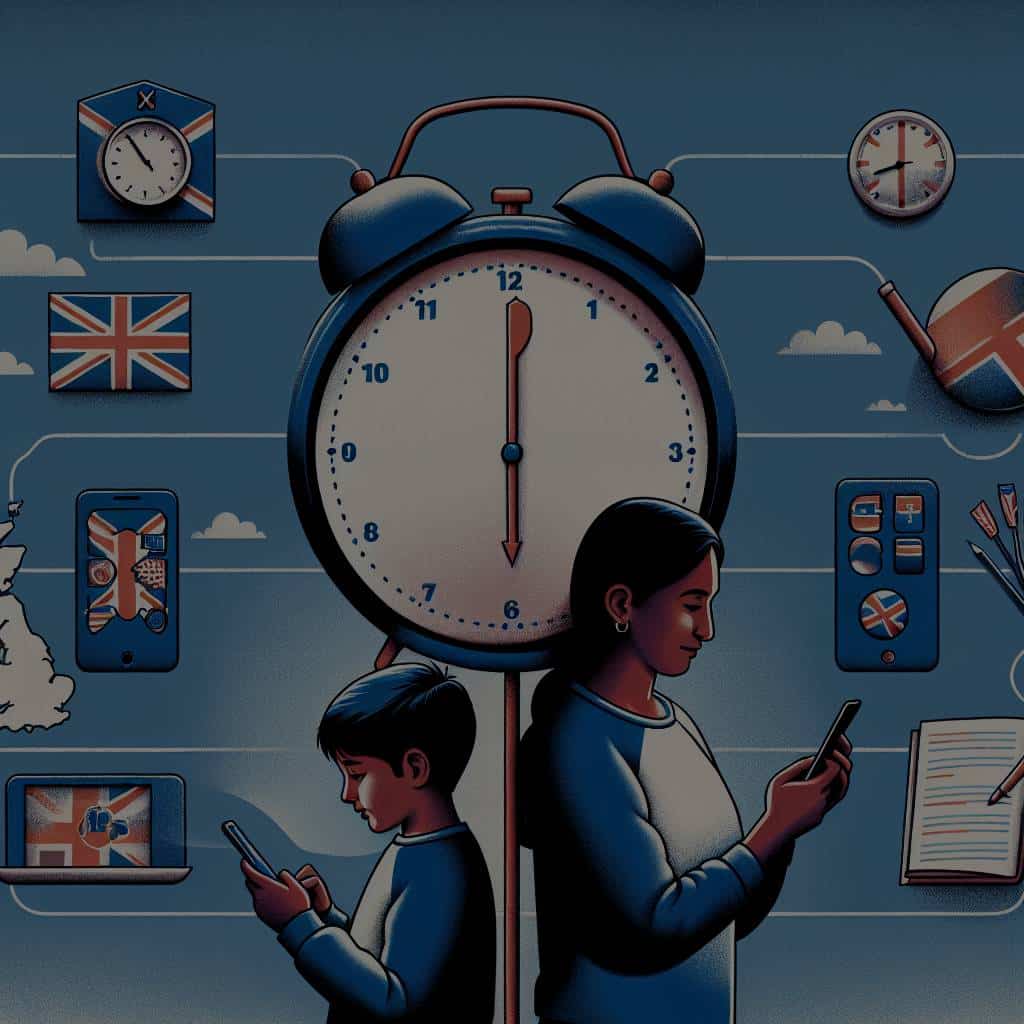How to effectively manage screen time for children in the UK’s digital age?

In today’s digital era, children growing up in the UK spend a significant part of their day in front of screens. This includes time spent watching television, playing video games, browsing social media, or doing schoolwork online. While technology has many benefits, excessive screen time can have adverse effects on children’s health and development. As parents, it’s essential to find the right balance between permitting your children to take advantage of the tech tools available and ensuring they engage in other important activities, such as physical play and sleep. In this article, we explore strategies for managing children’s screen time effectively.
Recognising the Impact of Screens on Children’s Health
Before delving into how to manage children’s screen time, it’s crucial to understand the health implications of excessive screen use. While digital media offer a plethora of learning opportunities, too much time in front of the screen can lead to a variety of health issues, including sleep problems, obesity, and developmental delays.
In parallel : What measures are being taken to protect the UK’s honeybee populations from decline?
Numerous studies have highlighted the link between prolonged screen time and insufficient sleep among children and adolescents. Blue light emitted by screens can interfere with the natural sleep cycle, making it harder for children to fall asleep and stay asleep.
Moreover, inactive screen time can contribute to an unhealthy lifestyle, as it’s often associated with snacking on high-calorie foods and a lack of physical activity. This can lead to weight gain and, over time, obesity.
Also to read : How can gamification in apps encourage sustainable habits among UK residents?
In terms of cognitive and socio-emotional development, excessive screen time can impede children’s ability to focus, interact socially, and develop problem-solving and play skills. This is particularly concerning for younger children, who need real-life interactions and hands-on experiences to learn and grow.
Implementing Screen-Free Times and Zones
One effective way of managing screen time is by establishing screen-free times and zones in your home. For instance, you can make meal times and the hour or so before bedtime screen-free. This not only promotes better sleep and healthier eating habits but also provides opportunities for family interaction, critical for children’s social development.
Having screen-free zones in the house, particularly in children’s bedrooms, can also be beneficial. This not only discourages late-night screen use but also ensures that children have a quiet, distraction-free space for sleep, homework, or other activities.
Promoting Balance with Other Activities
Ensuring your children have a balanced lifestyle is key to managing screen time. This means encouraging physical activities and hobbies that don’t involve screens. For example, you can organise family outings to the park, enrol your children in sports clubs or art classes, or simply encourage outdoor play in the garden.
In terms of schoolwork, while many assignments may require online research or digital tools, ensure that your children also engage in offline educational activities. These could include reading books, practising handwriting, or doing creative projects that require hands-on work.
Educating Children on Responsible Media Use
Teaching your children about responsible media use is another effective strategy. This involves explaining the potential risks and consequences of excessive screen time, and discussing safe online behaviour. Cyberbullying, inappropriate content, and online predators are real risks children face when they spend time online. Therefore, it’s vital to teach them how to use the internet safely and responsibly.
Using Technology to Manage Screen Time
Finally, technology itself can be a useful tool to help manage your children’s screen time. There are numerous apps and software available that enable parents to monitor and limit their children’s screen use. For example, you can use parental control features to block access to certain sites or apps, set daily screen time limits, or schedule device-free times. Remember, however, that these tools should be used in conjunction with open conversation and education about responsible media use, not as a substitute for parental supervision or engagement.
In a world where screens are ubiquitous, managing your children’s screen time can be challenging. However, by understanding the health implications, implementing screen-free times and zones, promoting balance with other activities, educating children about responsible media use, and using technology wisely, you can help ensure that your children reap the benefits of the digital age without compromising their health or development. It’s all about finding the right balance for your family.
Encouraging the Positive Aspects of Screen Use
While it’s essential to manage and limit your child’s screen time, it’s equally important to acknowledge and encourage the beneficial aspects of digital technology. As we navigate the digital age, we must remember that screens aren’t inherently detrimental. They can offer a range of educational opportunities, social connections, and creative outlets for children and adolescents.
Television shows, online games, and social media platforms can provide valuable content that stimulates imagination, fosters learning, and promotes cultural awareness. For instance, educational apps and video games can enhance academic performance by making learning interactive and fun. Similarly, social media can help young people maintain relationships, develop empathy, and understand diverse perspectives, provided they are used responsibly.
Moreover, being tech-savvy is a crucial skill in today’s world. Through their interactions with digital media, children can develop skills in problem-solving, critical thinking, and digital literacy. This includes learning how to use various software, understanding digital etiquette, and maintaining online privacy and security.
Therefore, parents should not solely focus on limiting screen time but also on guiding their children to use digital technology in a way that is enriching and productive.
The Role of Schools and Community in Managing Screen Time
Schools and community organisations have a significant role in managing children’s screen time. Given that a substantial portion of a child’s day is spent at school, the policies and practices implemented there can significantly impact their screen habits. Schools should aim to integrate technology into the curriculum in a manner that enhances learning, rather than merely increasing screen time.
Educational institutions can also organise programmes that encourage physical activity and creative expression, reducing the allure of screens during recess or after school hours. This can be complemented by community-led initiatives, such as local sports clubs or art workshops, to provide children with alternative ways to spend their leisure time.
Furthermore, schools can provide resources and organise sessions to educate students, parents, and teachers about the responsible use of digital technology. This could cover topics such as online safety, digital citizenship, and healthy digital habits, contributing to a more comprehensive approach to managing screen time.
Conclusion
In the UK’s digital age, managing children’s screen time is a multifaceted task. It requires an understanding of the potential health implications and a commitment to implementing strategies that balance screen use with other essential activities. As parents, we need to ensure that our children can navigate the digital world safely and responsibly, all while reaping its benefits.
Encouraging physical activities, setting screen-free times, teaching about responsible media use, and using technology to limit screen time are all effective strategies. However, it’s crucial to remember that screens are not our enemies. They can enhance learning, foster creativity, and help our children prepare for a digital future.
In addition, schools and community organisations can play a significant part in shaping children’s screen habits. By promoting healthy digital practices and providing alternatives to screen-based activities, they can help create a balanced digital environment for our children.
In essence, managing screen time is about more than setting time limits – it’s about teaching our children to use digital technology mindfully and make choices that support their well-being and development. It’s a collective effort that calls for engagement from parents, educators, and the wider community. Together, we can guide our children through the digital age in a way that nurtures their growth and safeguards their mental health.
